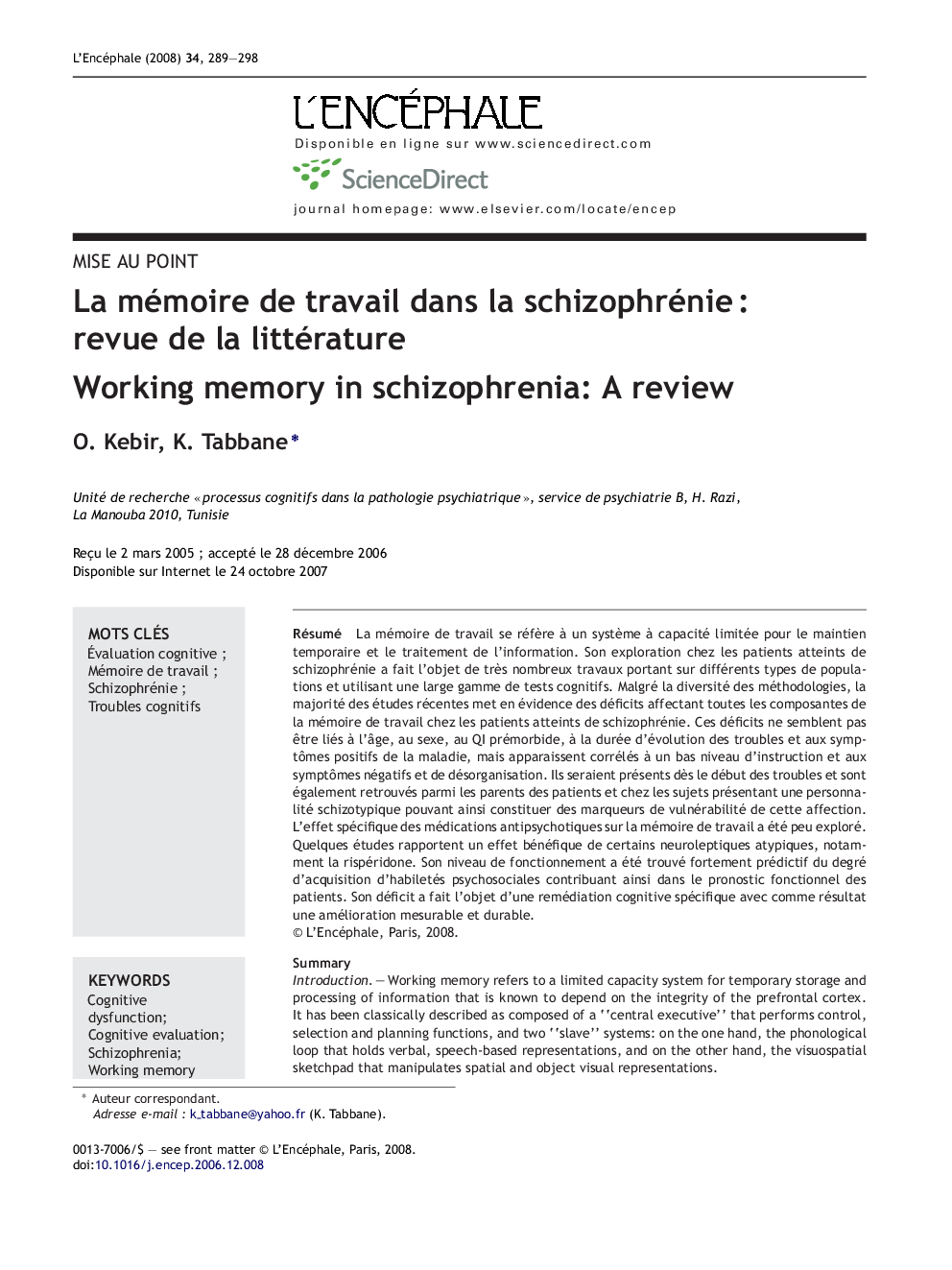| Article ID | Journal | Published Year | Pages | File Type |
|---|---|---|---|---|
| 4182641 | L'Encéphale | 2008 | 10 Pages |
Abstract
Studies in schizophrenia have used different tasks that tap different processes within the working memory. Despite the variety of measures, there is solid neuropsychological evidence that patients with schizophrenia demonstrate deficits in all subsystems of working memory. Several studies have shown no correlations between working memory deficits and age, gender, premorbid IQ, duration of disease or positive syndrome, but a correlation has been found with a low-educational level, and negative and disorganization symptoms. Neuroimaging studies have provided evidence of an involvement of the dorsolateral-prefrontal cortex during working memory performance. Many studies have demonstrated a functional deficit in this area. However, several recent studies have reported either equal or increased activation of the dorsolateral-prefrontal cortex in schizophrenia during working memory performance. Working memory deficits are present early in the course of schizophrenia and they have been shown to be consistently associated with reduced levels of elementary social skills and learning capacity. Unaffected relatives of individuals with schizophrenia and individuals diagnosed with schizotypal personality demonstrate deficits in tasks designed to measure working memory function. Working memory dysfunctions might be suitable candidate markers for vulnerability. Certain executive sub-processes seem to be the most heritable component of the working memory. Working memory deficits in schizophrenia may benefit from specific stimulation of receptors such as the dopaminergic D1 receptor, adrenergic α-2A receptor or nicotinic receptors. Few studies on the effect of antipsychotic medication on working memory in schizophrenia have been carried out and their results are highly variable. Atypical antipsychotic drugs, notably risperidone, have appeared to improve performance in working memory tasks. Cognitive exercises can improve working memory with a six-month persistent effect.
Keywords
Related Topics
Health Sciences
Medicine and Dentistry
Psychiatry and Mental Health
Authors
O. Kebir, K. Tabbane,
